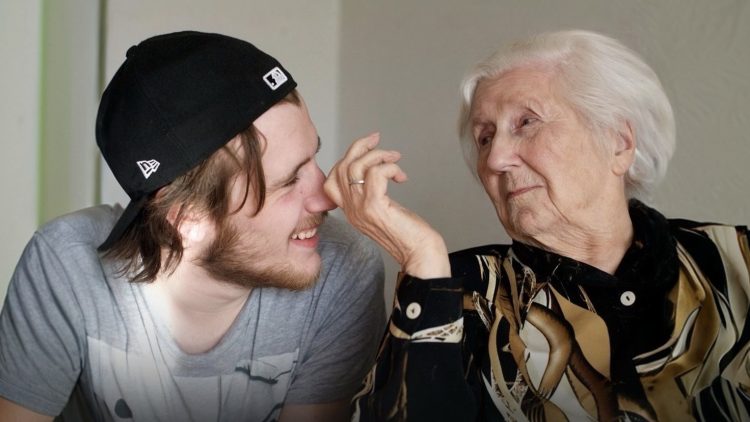In the Netherlands, a nursing home came up with something pretty special: students get to live there without paying rent.
But there’s a catch — they need to spend 30 hours a month just being around the elderly. Talking, sharing meals, or simply being present.
This whole setup isn’t just about saving money. It’s meant to help people feel less lonely, giving them a sense of connection, and making both generations feel like they matter.
A student complaint kicked it all off
The idea actually started with a simple complaint. A student named Onno Selbach wasn’t happy about the noisy, rough housing near campus.
He reached out to Gea Sijpkes, who runs the Humanitas home in Deventer. They got talking and ended up creating this program together.
They wanted to build a warmer place to grow old
“It started with the idea of becoming the warmest home for seniors in Deventer,” said Gea Sijpkes, the director. “And we wanted to do that with the energy of the youth.”
She wasn’t just looking to fill rooms. She wanted real community — something joyful, something alive.
Students live rent-free, but they give back
The deal is pretty straightforward. Students live in small apartments for free, but they need to give back at least 30 hours a month.
They aren’t staff. They’re more like neighbors who hang out, lend a hand, or just keep folks company.
This whole thing started about twelve years ago, and it’s still going strong.
The magic comes from simply spending time together
The students help out in all kinds of ways, watching games, showing up for birthdays, or just sitting with someone when they’re sick.
There are no strict rules about what counts. Pool parties and dinners happen naturally, but sometimes it’s just small, quiet moments.
Talking, listening, laughing — that’s where the real connection happens.
They aren’t nurses or aides, just good neighbors
“The students are not caregivers,” Sijpkes explained, “but instead ‘good neighbors.’”
There are six students from nearby schools living with about 160 older folks in the building. They can come and go freely, as long as they’re respectful and not disruptive.
The benefits go far beyond free rent
Loneliness and isolation can seriously impact seniors’ health. A report from 2012 even linked it to higher chances of dying early.
But friendships between different generations seem to help with that. They’ve been shown to ease stress, improve self-esteem, and help fight off depression.
Everyone ends up learning something from the other side
“It doesn’t all have to be grand and exciting,” said Peter Kolb, one of the student residents. “If you talk to each other and show interest in each other, that already gives so much meaning.”
Another student, Dakota Donath, said, “They taught me to slow down a bit more. That doesn’t make me older, but more aware of life.”
It’s not just companionship. It’s perspective.
Word has gotten out, and others are copying the idea
Even though it’s tucked away in a small river town, this little experiment has grabbed attention worldwide.
Now, colleges and nursing homes in other countries are trying similar things.
The future will include shared housing and joint projects
Sijpkes and her team aren’t done yet. They’re planning something called “Woonstudent 2.0,” where students and older folks actually live in the same unit.
“We continue to innovate,” she said. “We are exploring ways to further enrich the interaction between students and residents and [we] want to create more space for joint projects, making optimal use of the skills and experiences of both generations.”
She believes the whole thing works because it’s “so simple, but the impact is so big.”
“It does not require huge investments or complex care structures,” she added. “It only requires people who are prepared to share their lives with others from a different generation.”
And as Sijpkes likes to say, “Here, we are in the business of happiness. The initiative has proven to be a great success.”
















































